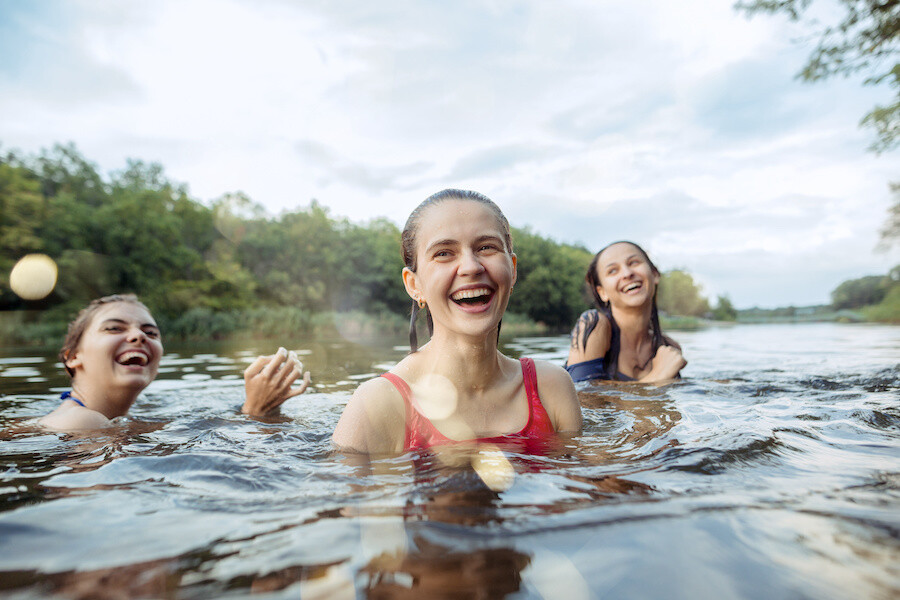Spending time in natural bodies of water — like oceans, lakes, and rivers — is a great way to enjoy the outdoors with family and friends.
While this can help you stay active, it is important to know that the water we swim, play, wade, and relax in can also spread germs and make you, and those you care about, sick. Germs found in the water and sand (swim area) often come from human or animal feces (poop). One way germs can be carried into swim areas is by heavy rain. Water from heavy rain picks up anything it comes in contact with (for example, poop from where animals live) and can drain into swim areas.
These germs can also come from humans or animals pooping in or near the water. Water contaminated with these germs can make you sick if you swallow it. It can also cause an infection if you get into the water with an open cut or wound (especially from a surgery or piercing). If your body’s ability to fight germs is already affected by other health problems or medicines, check with your healthcare provider before swimming in oceans, lakes, rivers, and other natural bodies of water.
Research has shown that the risk of infection is the highest during and the day after rain, and declines to around normal levels after three days.
